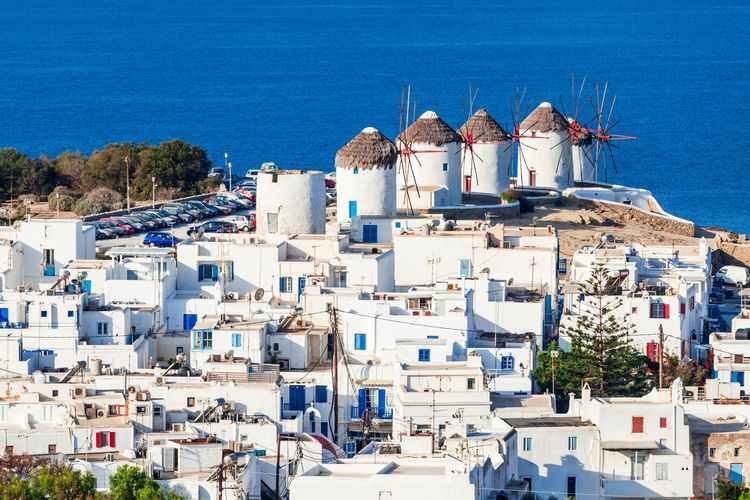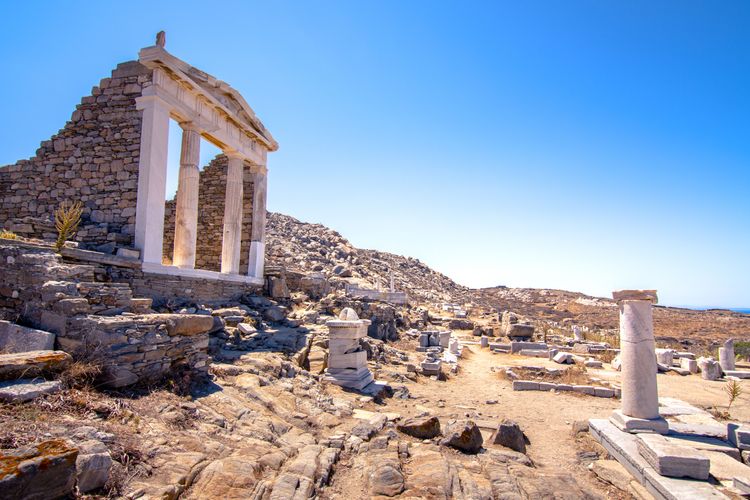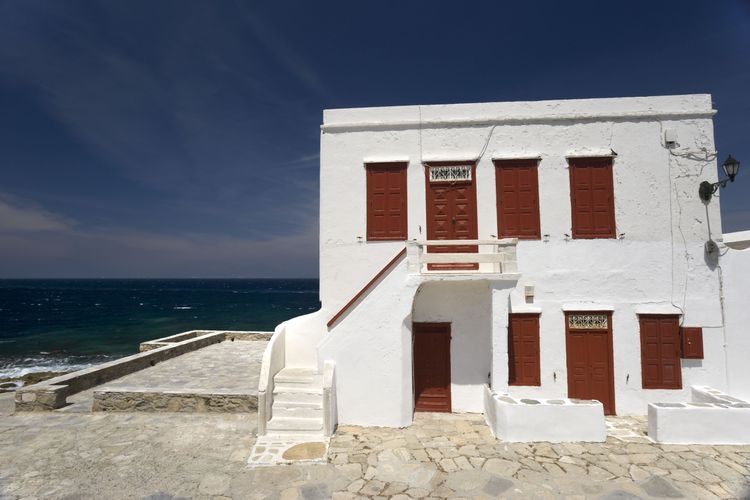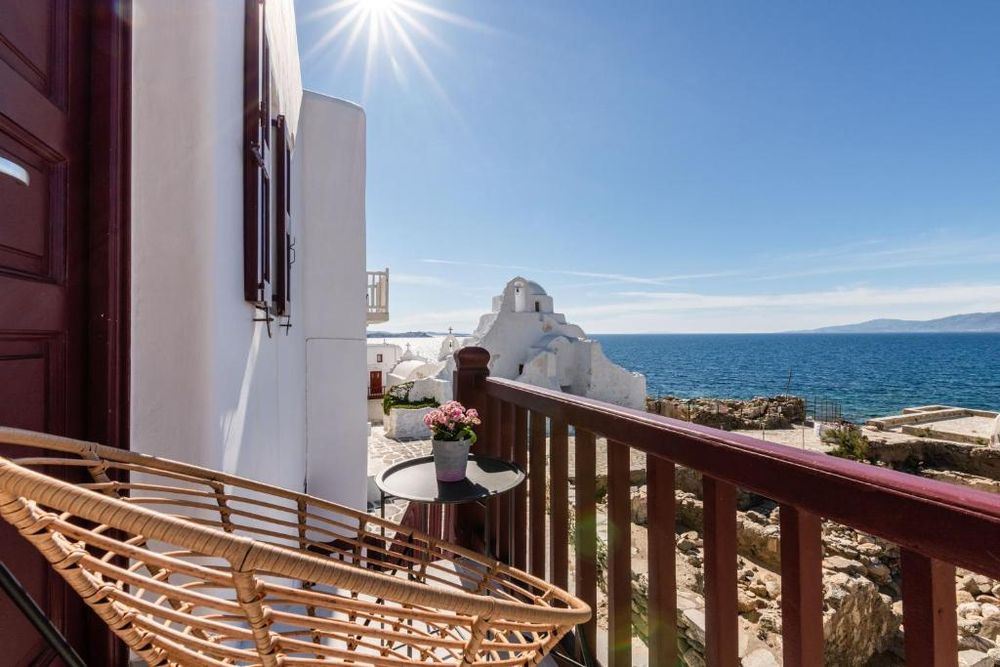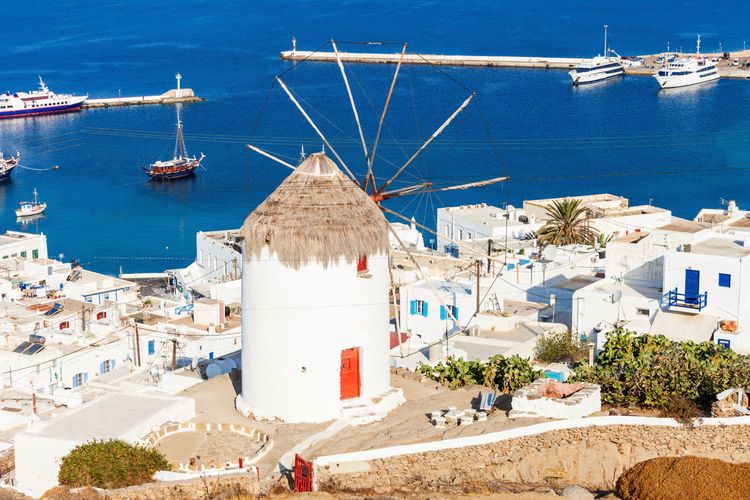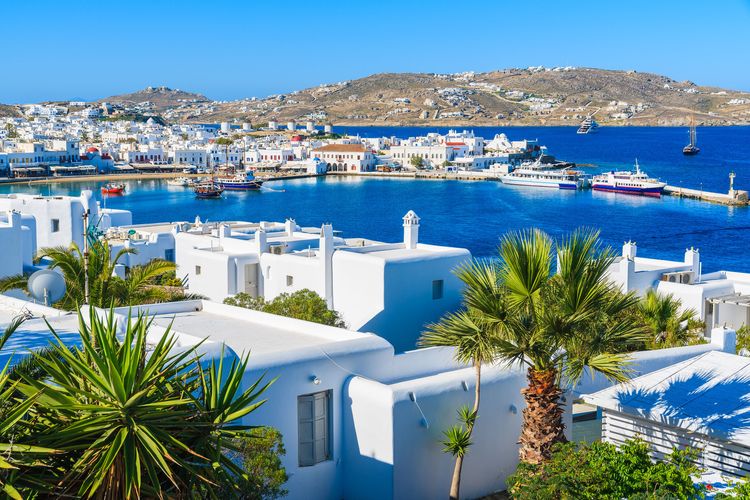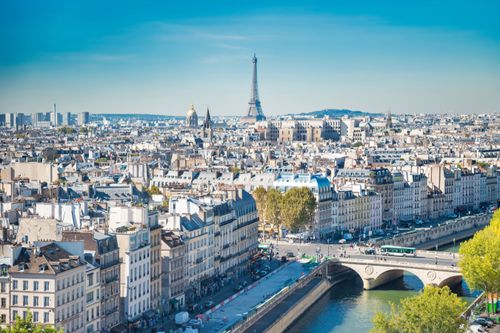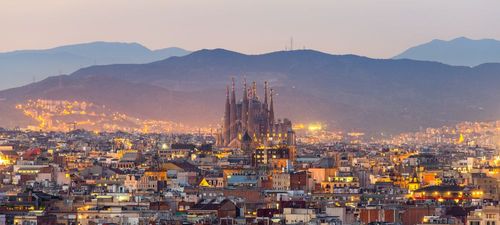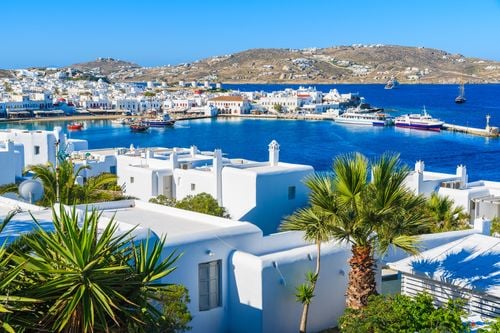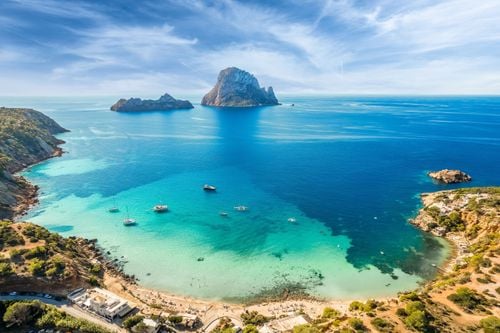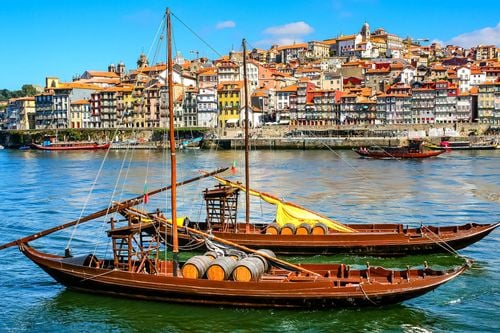Mykonos has a surprisingly long history: few remains have been found on the island dating back to ancient Greece, when it was largely overshadowed by its two much smaller neighbours, Delos and Rhenaeus (Rinia).
Delos, the mythical birthplace of Apollo and Artemis, was the more prosperous of the two, a sanctuary that spread throughout the Greek world and a thriving commercial centre. Much less well known, yet right next to Delos, Rhenaeus was also home to an active community, with direct links to the city of Delos: agriculture and, above all, childbirth and burial!
